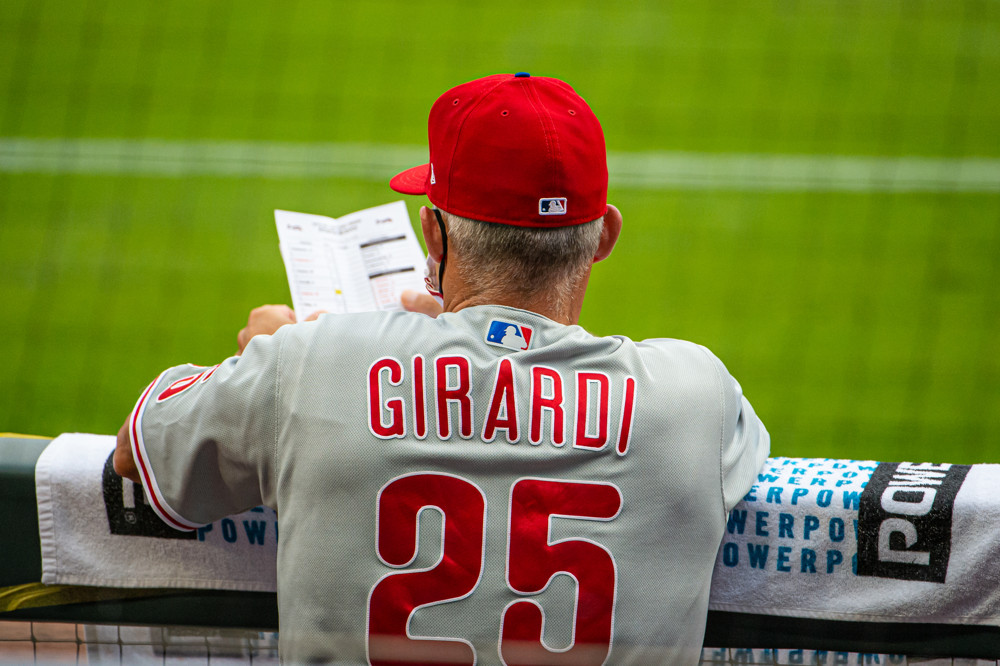Phillies manager and baseball lifer Joe Girardi is open to change within the sport. He supports virtually every new rule implemented for the 2020 season — except the three-batter minimum.


“Every rule that they’ve added this year, I’m actually all for,” Girardi said on Oct. 13 during an MLB Network Radio appearance “Some people don’t like the extra innings [rule]. I think what that does is it allows you not to fray your bullpen. Not where you have to make moves and send people down. You play an 18 inning game and then you gotta give your star a day off.
“I think it keeps your players on the field and your team intact. I am for that but [the three-batter minimum] changes the strategy too much.”
Strategy in this case means being able to optimize matchups when deploying arms from the bullpen. Girardi was asked before the end of the regular season if the three-batter minimum impeded his ability to manage the bullpen the way he wanted to.
“Absolutely,” Girardi said. “And here’s the other thing, I don’t see the games being any faster. The whole point of it was to make the game faster. They’re not any faster.”
The average length of a nine-inning game in 2019 was three hours and five minutes, according to Baseball-Reference. In 2020, that number rose to a record-high three hours and seven minutes.
“I’m out on that rule. Don’t change the strategy of the game.”
An interesting question to pose is whether or not the rule change made the Phillies bullpen considerably worse off. The unit’s 7.06 ERA trails only the 1930 Phillies bullpen (8.01) as the worst in baseball history. The rule change is far from the reason why the bullpen was catastrophically bad in 2020.
There were a few instances this season in which the rule handcuffed Girardi into keeping a reliever on the mound who would end up surrendering the winning run. The problem, however, lies in having a unit full of relievers who can’t hold leads.
The Phillies’ 2020 bullpen woes stem from an inability to develop homegrown arms and a reluctance to spend money in the free-agent reliever market during the prior offseason. Injuries to key relievers such as Seranthony Domínguez and David Robertson, a disastrous trade deadline and some short-sighted decision making from both the front office and ownership group also factor into the problem.
Whether the rule returns or not will have a considerable impact on how the Phillies reconstruct their historically bad bullpen. Despite his post-deadline struggles, RHP David Phelps has a track record of being able to get both left-handed and right-handed batters out consistently. He could be a worthwhile arm to keep for one-year with the rule in place. If the rule turns out to be a one-and-done, the Phillies could instead load up on righty and lefty specialists if they choose to.
Since the rule had no effect on the length of games, it’ll be interesting to see if the league leans more towards getting rid of it in 2021. Unlike the seven-inning doubleheader and runner on second rule, the three batter minimum was meant to be a permanent fixture rather than a response to the pandemic-shortened season. MLB made the rule change official in February after Commissioner Rob Manfred announced it was coming last December.